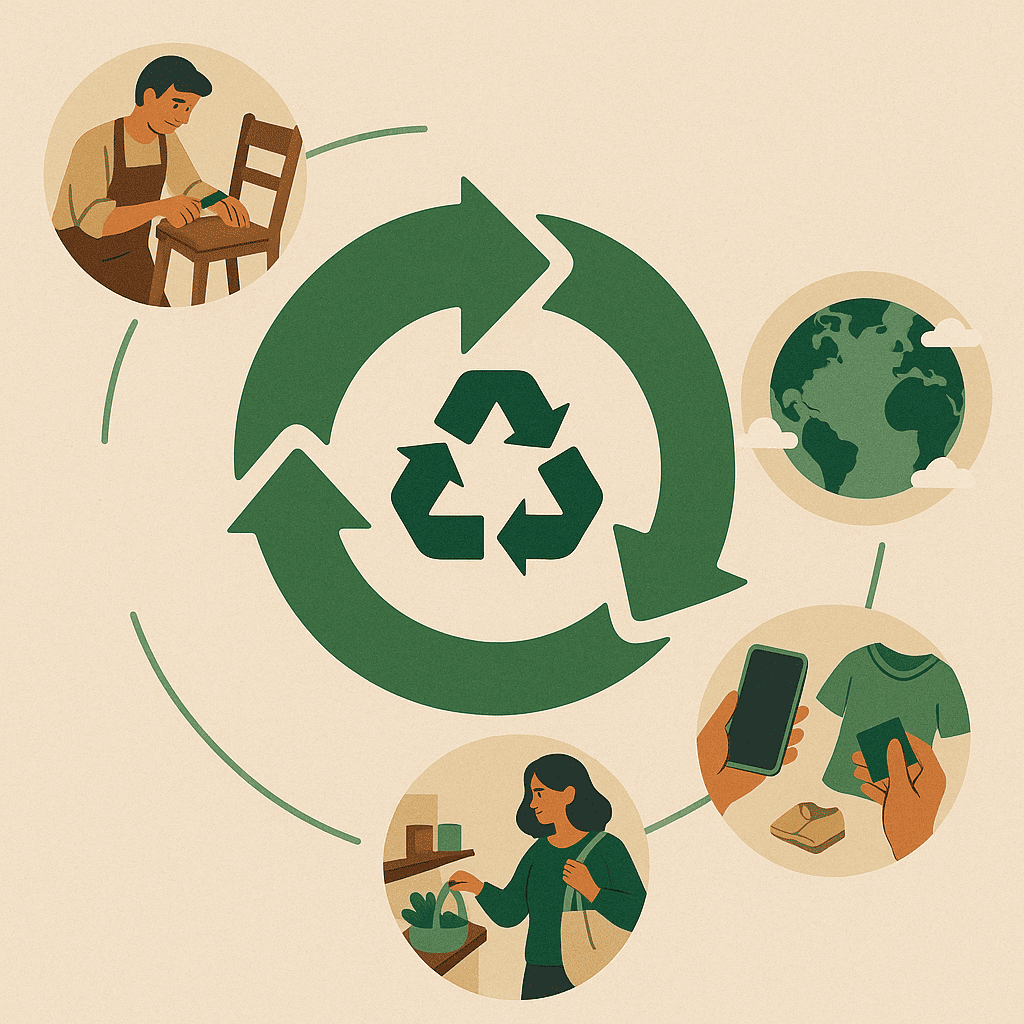Why a Circular Economy?
The Programme for Government has long committed to breaking the wasteful cycle of consumption and disposal, with a focus on repair, reuse, refurbishment, and recycling. The circular economy is not only about protecting the environment, but also about future-proofing Ireland’s economy and society against the risks of climate change, supply chain shocks, and unsustainable resource use.
Ireland’s first Whole of Government Circular Economy Strategy, supported by the Circular Economy and Miscellaneous Provisions Act 2022, laid the foundation by:
- Creating a policy and regulatory framework for circular practices.
- Raising public awareness of waste and overconsumption.
- Supporting investment in repair and refurbishment centres.
- Identifying barriers — legal, economic, and social — to circular progress.
This second strategy will now go further, setting statutory targets for key sectors such as agriculture, retail, packaging, textiles, and electronic equipment.

The Challenges Ahead
The Circularity Gap Report Ireland, published in 2024, underlined the urgency of this transition. While Ireland has grown economically and demographically, this growth has come at a material cost:
- Increased demand for housing and infrastructure.
- Greater consumption of food, manufactured goods, and services.
- Rising levels of waste that clash with Ireland’s climate and sustainability goals.
Officials warn that continuing on this linear path is incompatible with national and EU climate targets. The circular economy, however, offers resilience — ensuring that resources are used efficiently, businesses remain competitive, and communities thrive.
Consultation Process
The Department of Climate, Energy and the Environment has opened the door for the public to influence how Ireland’s circular economy strategy will look in its final form. This isn’t a closed discussion for policymakers alone — individuals, NGOs, community initiatives, and businesses are all encouraged to speak up. By gathering ideas from such a broad mix of voices, the Department hopes to ground the strategy not just in theory, but in real experiences of how people and industries deal with waste, resources, and sustainability every day.
How to participate:
Anyone interested can take part by filling out the Consultation Questionnaire, which is available on the Department’s official website. The completed form can then be submitted online by email or sent by post for those who prefer a paper trail. The process is simple by design, ensuring that even small community groups or single citizens have the same chance to be heard as larger organizations. In practice, it means that a farmer in rural Ireland, an urban recycling startup, or a local school campaign all have equal space at the table.
Data Protection
Responses to the consultation are subject to the Freedom of Information Act 2014, the Access to Information on the Environment Regulations 2007–2018, and the Data Protection Act 2018. Submissions may be published online, but all personal data will be redacted.
Participants are advised to clearly mark any confidential or commercially sensitive information in their responses.
Looking Ahead
The second Whole of Government Circular Economy Strategy will set the direction for Ireland’s circular transition between 2026 and 2028, embedding sustainability into law and everyday practice. By contributing to this consultation, stakeholders can help shape how Ireland:
- Reduces waste.
- Extends the life of products.
- Supports green jobs and regional development.
- Builds resilience to global supply chain disruptions.
The consultation is now open — and the government is calling on citizens and organisations alike to help shape Ireland’s sustainable future.
